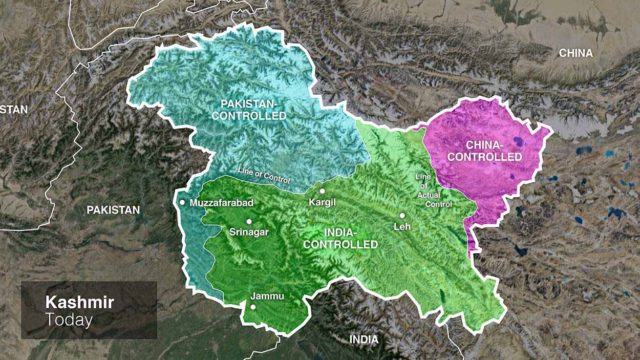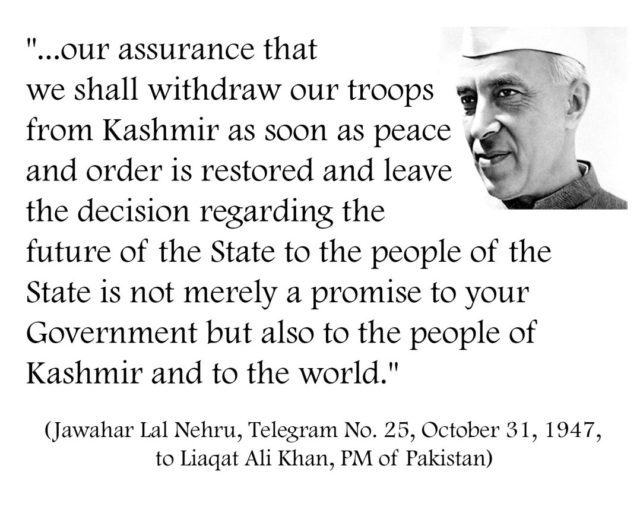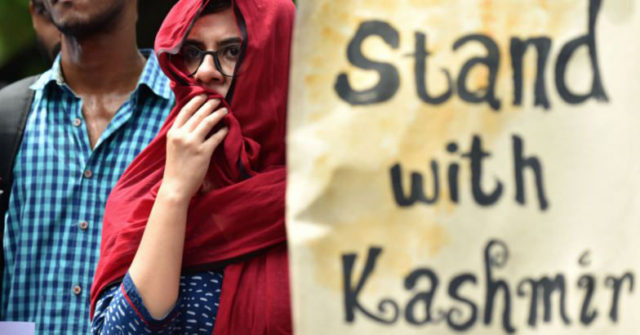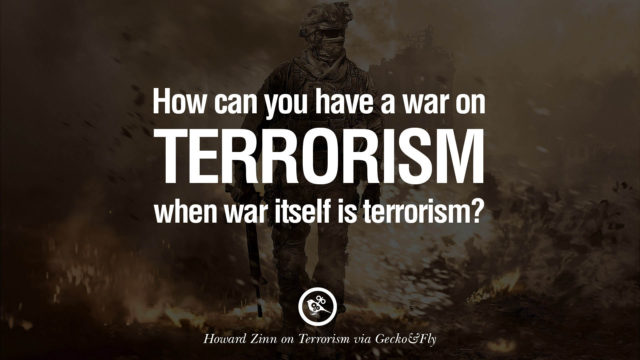On Friday, former Union Minister P. Chidambaram in Hyderabad said that Kashmir is “nearly lost” to India. He added that Kashmiris feel alienated due to the oppressive methods of the Indian government.
Such political remarks read in isolation would perhaps induce panic amongst those already fearing another partition.
But instead of panicking, let’s try to get a bigger, more holistic view of the situation. It’s time to understand all angles of the story so that we can form informed opinions about the struggle of Kashmir.
Map of Jammu & Kashmir
In most of the rest of the world, Jammu & Kashmir is shown as part of India but with a dotted line for the border to show that it is disputed. The Aksai Chin region is under disputed control of India and China, and the rest of J&K is under disputed control of India and Pakistan.
In India, however, all maps show the entire Jammu and Kashmir as being undisputed territory of India. This is because in India it is illegal to exclude all or part of Kashmir from a map. It’s not just textbooks that are obliged to do this; even Google India Maps came publicly under pressure to oblige, and did so in the end.
Within the state, there are three major regions – Ladakh, Jammu, and the Kashmir Valley. It is in the latter that most of the unrest lies.
“India Should Give Up Kashmir”
A chunk of Kashmiri youth wants India to quit fighting over Kashmir. They would rather be independent, or accede to Pakistan. These are the arguments used in favour of India giving up Kashmir:
1. Miscreants in the Indian Army harass the ordinary people of Kashmir. The Indian Army in itself is not at fault: most of them are there to help. But, there are a few who take undue advantage of the Armed Forces (Jammu and Kashmir) Special Powers Act 1990. This results in a lot of anger against the Indian Army. Kashmiris are sick and tired of being toyed around with.
2. The UNSC Resolution 47 passed in 1948 required, among other things, that Pakistan withdraw from the areas of Pakistan-administered Kashmir and that India create conditions for a free and impartial plebiscite to decide the future of the state. The Indian Army should then withdraw and maintain a skeletal force to ensure proper functioning of the civil affairs of the state after satisfactory withdrawal of Pakistani tribesmen and forces.
However, Pakistani forces never withdrew completely, and the Indian administration refused to conduct the promised referendum. There was a time when the Kashmir State government controlled all subjects of governance except defence, foreign affairs, currency and communication. This changed in 1953. As a result, Kashmir still feels betrayed by the Indian government.
3. They believe if India gives up its ownership, the dispute will end at long last, and will bring peace to the state, restoring its designated status as “Heaven on Earth”.
4. Majority of Kashmiris are Muslims, and the state’s official language is Urdu. So, they feel more solidarity in terms of culture with Pakistan than they do with India.
“Kashmir Should Stay With India”
Most Kashmiris (Hindus and Muslims alike), do not like India. Yet, they believe Kashmir should not leave the Indian Republic. These are the arguments raised against India giving up Kashmir:
1. Pakistan does not have the resources to sustain Kashmir. Case in point: Pakistan Occupied Kashmir. Pakistan focusses more resources on winning over the rest of Kashmir than it does on developing what it already has. POK is a highly underdeveloped region. This just goes to show Pakistan’s priorities, and development is obviously not one of them.
2. If Independence from both nations is what they are seeking, it’s not going to make matters any better. Kashmir cannot survive as an independent nation. This will cut it off from Indian tourism, which supports a large percentage of Kashmir’s economy.
Also, being entirely land-locked and not having rich mineral reserves, it will still depend on its neighbouring countries. It won’t be long before Pakistan attempts to take over. And then the Indian Army won’t be there to defend Kashmir’s borders. Kashmir will be rendered a cess pool of terrorism and drug trafficking.
3. India is way more welcoming to Muslims than Pakistan is to Hindus. If Kashmir were to fall into Pakistan’s hands, Kashmiri Hindus will either be entirely displaced or mistreated by the Pak administration.
So, What Must Be Done?
There is a third fragment of Kashmiris – those who want to stick with India but want greater autonomy. I am no expert on politics, but this seems like the most logical approach. India should stop hard-handing the Kashmiri youth; engage in rational dialogue with them.
India needs to focus on more development projects in Kashmir. But, more than anything else, there is a dire need for a peaceful agreement to give the people of Kashmir a sense of security that they are indeed free.
Image Source: Google Images
Would you like to share your opinion and discuss more on the matter? Then add us on Snapchat and we could hit up an interesting conversation. Click the link below to add Economy Decoded on Snapchat.
ED – The Youth Blog on Snapchat
If you liked reading this, you might want to check out:
All You Need To Know About The Kashmir And Balochistan Issue: Demystified






































